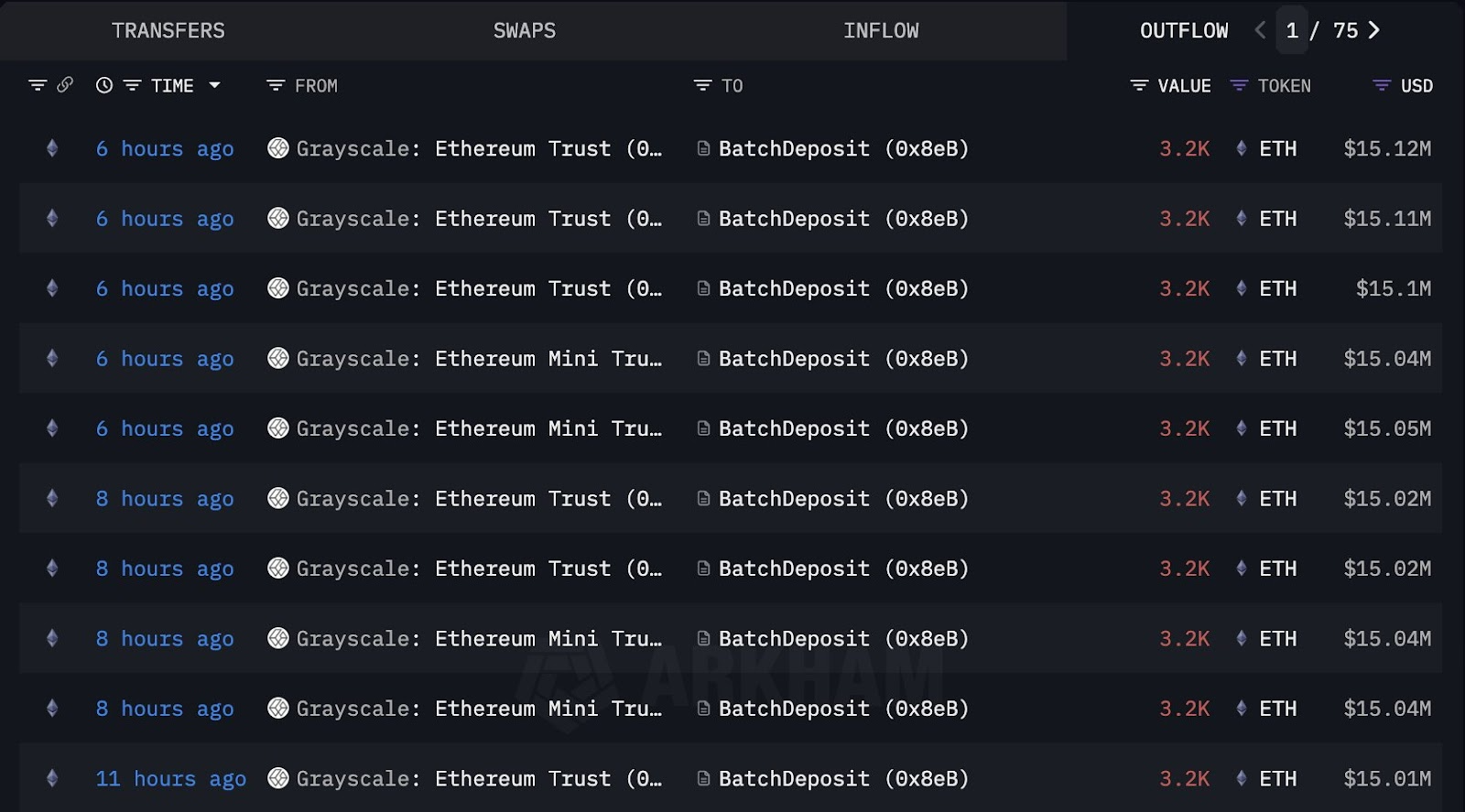
Grayscale Invests $150 Million in Ether Ahead of SEC ETF Deadlines
Grayscale has staked $150 million in Ether after launching its first US crypto ETPs that offer staking rewards, as significant SEC deadlines approach this month.
Grayscale has recently staked $150 million in Ether following the launch of the first US crypto ETPs providing staking rewards. This investment coincides with pivotal deadlines from the SEC regarding altcoin ETPs this month.
The company staked 32,000 Ether (ETH), valued at $150 million, as indicated by blockchain data from Lookonchain. This transaction took place shortly after Grayscale introduced staking for its Ether ETPs, establishing itself as the first US crypto fund issuer to offer passive income through staking.
This initiative allows Grayscale’s ETP and its investors to start gaining passive income through staking rewards on the substantial amount invested. According to Grayscale’s ETP Staking Policy, these rewards will be regarded as fund assets.
After deducting fees, shareholders can earn approximately 77% of the total staking rewards from Grayscale’s Ethereum Trust and nearly 94% from the Ethereum Mini Trust, based on the fee structures revealed in SEC filings.
Currently, Grayscale has two notable funds under the regulatory oversight of the Securities Act of 1933, diverging from rules set for traditional mutual funds. These products, Grayscale Ethereum Trust ETF (ETHE) and Grayscale Ethereum Mini Trust ETF (ETH), are expected to be in focus, especially as two more Ether staking funds await SEC responses this October.
Moreover, the outlook for October appears optimistic for crypto enthusiasts, with 16 crypto ETP applications on the SEC’s agenda, including significant staking fund proposals from 21Shares and BlackRock.
 Source: Lookonchain
Source: Lookonchain
Taken from Lookonchain data.
These developments come at a time when a government shutdown may impact the SEC’s operations, slowing down decisions on crypto ETP applications and increasing demand for cryptocurrency funds amid uncertainties in traditional financial markets.


